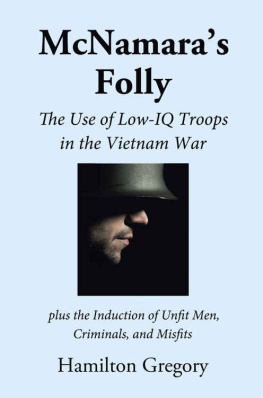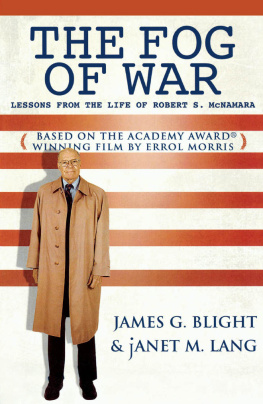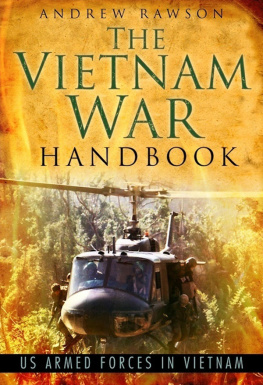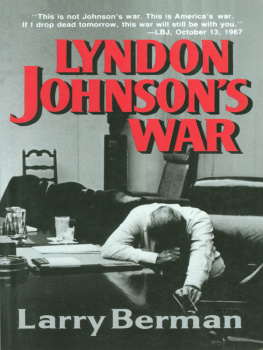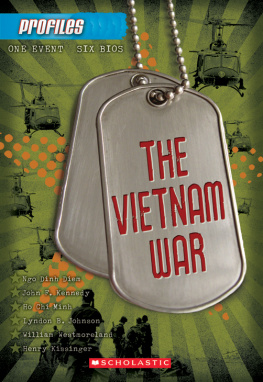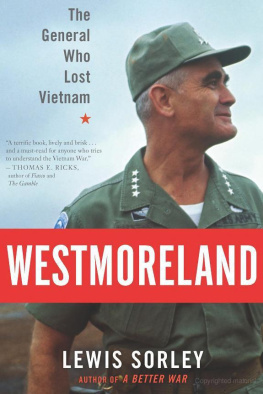McNamaras Folly
The Use of Low-IQ Troops in the Vietnam War
plus
The Induction of Unfit Men, Criminals, and Misfits
Hamilton Gregory

All rights reserved. No part of this book shall be reproduced or transmitted in any form or by any means, electronic, mechanical, magnetic, photographic including photocopying, recording or by any information storage and retrieval system, without prior written permission of the publisher. No patent liability is assumed with respect to the use of the information contained herein. Although every precaution has been taken in the preparation of this book, the publisher and author assume no responsibility for errors or omissions. Neither is any liability assumed for damages resulting from the use of the information contained herein.
Copyright 2015 by Hamilton Gregory
ISBN 978-1-4958-0548-6
ISBN 978-1-4958-0549-3 eBook
Published June 2015
Cover: The photo is of a model for the stock photo agency Shutterstock. Copyright by John Gomez.

INFINITY PUBLISHING
1094 New DeHaven Street, Suite 100
West Conshohocken, PA 19428-2713
Toll-free (877) BUY BOOK
Local Phone (610) 941-9999
Fax (610) 941-9959
www.buybooksontheweb.com
Dedicated to the memory of
Merrell,
my beloved wife and best friend
Contents
Illustrations
1. I am aware that words like moron, retarded, fatso, and dwarf are considered insensitive and offensive in society today, but I use them because they were widely used in the 1960s, and it would mar the historical accuracy of my report if I replaced them with words that are kinder. Likewise, I sometimes quote individuals whose descriptions are harsh and unsympathetic, but I have included them to document how men who were different were viewed and treated in those days.
2. The names and certain other identifying features of the men at Fort Benning have been changed to protect the privacy of the individuals and their families.
In 1966, the U.S. war in Vietnam was heating up rapidly, and President Lyndon Johnson and his Secretary of Defense, Robert McNamara, were faced with a problem: The Armed Forces needed more and more troops for the war zone, but there was a shortage of men who were considered fair game for the military draft. There were plenty of men of draft age (18-26) in America, but most of them were unavailable. Many were attending college, using student deferments to avoid the draft. Others had found safe havens in the National Guard and Reserves, which by and large were not sent to Vietnam. Still others were disqualified because they scored poorly on the militarys mental and physical entrance tests.
How could Johnson and McNamara round up enough men to send to war? They realized that they would anger the vote-powerful middle class if they drafted college boys and if they sent National Guardsmen and Reservists to Vietnam. So instead they decided to induct the low-scoring men, whom Johnson referred to (in a secret White House tape) as second-class fellows. On October 1, 1966, McNamara launched a program called Project 100,000, which lowered mental standards. Men who had been unqualified for military duty the day before were now deemed qualified. By the end of the war, McNamaras program had taken 354,000 substandard men into the Army, Marine Corps, Air Force, and Navy. Among the troops, these men were often known as McNamaras Morons or the Moron Corps or McNamaras Boys.
Military leadersfrom William Westmoreland, the commanding general in Vietnam, to lieutenants and sergeants at the platoon levelviewed McNamaras program as a disaster. Because many of the Project 100,000 men were slow learners, they had difficulty absorbing necessary training. Because many of them were incompetent in combat, they endangered not only themselves but their comrades as well.
A total of 5,478 low-IQ men died while in the service, most of them in combat. Their fatality rate was three times as high as that of other GIs. An estimated 20,270 were wounded, and some were permanently disabled (including an estimated 500 amputees).
There were also tens of thousands of other second-class men who were not part of Project 100,000 but were inducted despite medical defects (such as missing fingers and blindness in one eye), psychiatric disorders, social maladjustment, and criminal backgrounds. Military leaders didnt want them, but were forced to accept them. We dont know how many of them died or were wounded.
While I was in the Army (1967-1970), I got to know some of McNamaras substandard soldiers, and I vowed that someday I would tell their stories and give the historical background. This book is the fulfillment of that vow.
One morning in the summer of 1967, I was seated with over 100 men in a room at the Armed Forces induction center in Nashville, Tennessee. It was the height of the Vietnam War, and I had volunteered for service in the U.S. Army.
A sergeant walked into the room and announced that all of us would leave soon to travel to Fort Benning, Georgia, to begin our Army training. Then he asked, Is anyone here a college graduate?
I raised my hand, and he motioned me to follow him. He took me down a hallway to a bench where a young man was sitting. He informed me that the man was named Johnny Gupton, who was also being assigned to Fort Benning. I want you to take charge of Gupton, he said. Go with him every step of the way. Without bothering to lower his voice, he explained that Gupton could neither read nor write and would need help in filling out paperwork when we arrived at Benning. Then he added, Make sure he doesnt get lost. Hes one of McNamaras Morons.
I had never heard the term, and I was surprised that the sergeant would openly insult Gupton. In a few weeks I would learn that McNamaras Morons was a term that many officers and NCOs (non-commissioned officers) used to refer to low-IQ men who were taken into the military under a program devised by Defense Secretary Robert S. McNamara to raise their IQs and mold them into productive soldiers. (I will give historical details in Part Three of this book.)
The sergeant left us for a while. When he returned, he gave me a sealed envelope that contained my personnel records and Guptons. I was instructed to give the package to the sergeants when I arrived at Fort Benning.
Gupton and I and the other men who were assigned to Fort Benning rode on buses to the airport, where we boarded an airplane for a flight to Georgia. We were headed toward Basic Combat Training, a rigorous, eight-week training regimen that every person who entered the Army had to go through. Its goal was to transform civilians into soldiers who were strong and agile, able to use rifles and grenades in combat, and thoroughly adapted to the Army culture of unquestioning obedience to commands from superiors.
I was nervous about the rigors ahead, but I felt brave and stoic and important. I envisioned losing weight and bulking up my muscles, becoming a lean green fighting machine, as the popular saying had it. I looked beyond the eight weeks of hell and pictured myself going home on leave looking hard and fit.
I tried to make small talk with Gupton, but he didnt say much. I asked him what state he was from, but he didnt know. (I later found out that he was from Tennessee. He lived in one of the isolated poverty pockets in the Appalachian Mountains in the eastern part of the state.) He spoke with a hillbilly accent and used mountain phrases like I knowed it, and sody water (for soda pop). He looked unhealthily thin.
Next page
